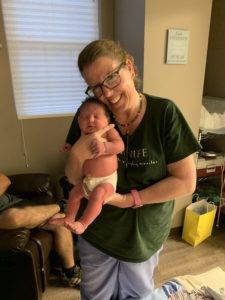 Frontier Nursing University (FNU) alumna Jennifer Cameron, MSN, CNM, is serving her hometown community as the only certified nurse-midwife (CNM) in a two-county area.
Frontier Nursing University (FNU) alumna Jennifer Cameron, MSN, CNM, is serving her hometown community as the only certified nurse-midwife (CNM) in a two-county area.
Jennifer’s hometown of Manistee, Mich. has a population of 15,000 with around 25,000 in the surrounding county. It is a predominantly rural area and many patients suffer socio-economic challenges.
Two years ago, Jennifer was working at West Shore Medical Center OB-GYN, the town’s first ever in-hospital midwifery care facility. West Shore was bought out by the large regional Munson Healthcare and the OB department was shut down.
To meet the needs of patients, Jennifer opened Transitions Women’s Wellness Center, a women’s wellness center and free-standing birthing facility, and the only facility to deliver a baby in a two-county area. In the first full year of practice, Transitions received National Best Practice recognition.
 As a full-scope CNM, Jennifer is on call 24 hours a day, seven days a week. She offers non-traditional office hours at Transitions to accommodate work schedules and allow significant others and older children to attend appointments whenever possible.
As a full-scope CNM, Jennifer is on call 24 hours a day, seven days a week. She offers non-traditional office hours at Transitions to accommodate work schedules and allow significant others and older children to attend appointments whenever possible.
“I spend around an hour with each patient to make sure I am getting to know the whole woman so I can offer individualized, full-scope holistic care,” said Jennifer.
Transitions accepts every type of insurance including Medicaid, the most common coverage her patients carry. Michigan does not recognize or license birth centers, so Jennifer receives no facility reimbursement from the state. She has a part-time office assistant but has not been able to afford to hire help or take home a paycheck.
“I know that Mary Breckinridge never worried about payment for services and that things will improve in time,” said Jennifer. “I get paid in hugs and baked goods and donations of needed supplies. I know that I’m doing good things for the right reasons, for women and families that need and deserve a different kind of care.”
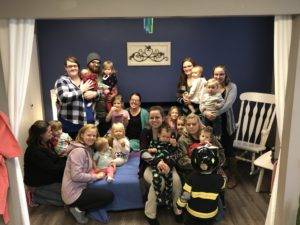 Jennifer chose to pursue nurse-midwifery because she wanted to bring the option of midwifery care to the area where she grew up. Many of the women in Manistee County are socioeconomically challenged, undereducated, underserved and underprivileged, but Jennifer’s hope is that by educating and empowering them, lives will be impacted not just today but for generations to come.
Jennifer chose to pursue nurse-midwifery because she wanted to bring the option of midwifery care to the area where she grew up. Many of the women in Manistee County are socioeconomically challenged, undereducated, underserved and underprivileged, but Jennifer’s hope is that by educating and empowering them, lives will be impacted not just today but for generations to come.
“I feel really blessed to be able to serve the women in this area,” said Jennifer. “The most rewarding thing for me is helping women who don’t think they’re worth much. When they leave after a year of pregnancy and child-bearing, they go as empowered women who know what’s going on with their bodies, understand how to be healthy, how to advocate for themselves and how important it is to be treated with respect in regards to healthcare.”
Transitions received a lot of media attention at the start of the new year. With the closing of the OB department, 2020 was the first year in the history of Manistee County that the first baby of the new year was not born in a hospital! The birth took place at Transitions. Jennifer had cared for the mother during her first three pregnancies but had never been present for the births, so it was special for her to attend the birth of the mother’s fourth child.
Jennifer graduated from FNU in 2013 with her master of science in nursing degree specializing in nurse-midwifery (class 74). She originally chose FNU after her first experience with nurse-midwives.
“We moved to Traverse City 19 years ago. At my job, there were four nurse-midwives, three of whom happened to be FNU graduates. They told me about Mary Breckinridge and the university’s continued mission to serve the underserved, and I was sold. I was born and raised in this rural area, and the people I grew up with deserve better care.”
Jennifer credits her time at FNU for giving her a different perspective on nurse-midwifery and healthcare than she would have received at another university.
“Other programs focus on how to work with doctors and make money, but Frontier really emphasizes how to recognize the need in your community,” she said. “They teach you to be an entrepreneur with the intent of seeking out those in need and serving them.”
Jennifer would like to see this service mentality embraced by nurse-midwives across the country.
“I think if Mary Breckinridge’s mission of serving the underserved were to spread through the entire nurse-midwifery community, and the medical community in general, we would have a much better picture of healthcare,” she said.
Jennifer has observed that the FNU community is distinctive in the nurse-midwifery world because of its diversity and its commitment to the higher calling of serving those in need. Being a part of this community has enriched Jennifer’s life.
“On days where I struggle, I reach out to my FNU nurse-midwifery classmates. Even though we live all over the country, we have stayed in close contact and I consider them my sisters. We support each other anytime, day or night, and we’re there for each other. I don’t think I would have had that type of close-knit community from any other midwifery program.”
To learn more about becoming a nurse-midwife and all of FNU’s program offerings, visit Frontier.edu.
What is a Certified Nurse-Midwife (CNM)?
Certified Nurse-Midwives (CNMs) are educated in two disciplines: midwifery and nursing. They earn graduate degrees, complete a midwifery education program accredited by the Accreditation Commission for Midwifery Education (ACME), and pass a national certification examination administered by the American Midwifery Certification Board (AMCB) to receive the professional designation of CNM. Certified Midwives (CMs) are educated in the discipline of midwifery. They earn graduate degrees, meet health and science education requirements, complete a midwifery education program accredited by ACME, and pass the same national certification examination as CNMs to receive the professional designation of CM.
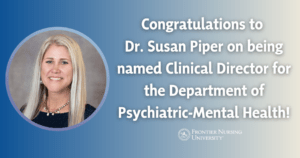
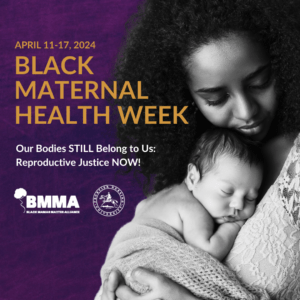
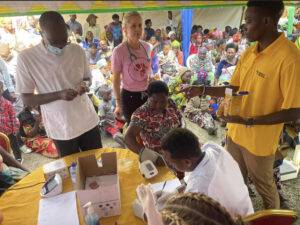
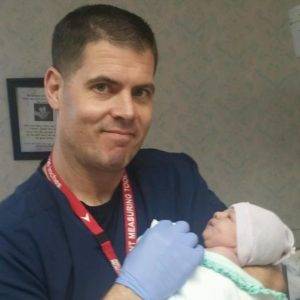 Frontier Nursing University
Frontier Nursing University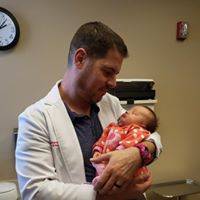 Today, Jacob is in a new position at
Today, Jacob is in a new position at 
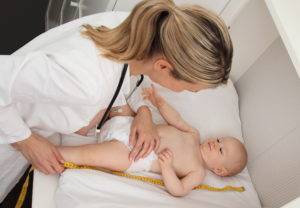 Are you nurse-midwife or nurse practitioner interested in serving patients at a higher level? Do you have a desire to influence the broader healthcare system? Do you thrive in an academic environment? If the answer is yes, consider obtaining your
Are you nurse-midwife or nurse practitioner interested in serving patients at a higher level? Do you have a desire to influence the broader healthcare system? Do you thrive in an academic environment? If the answer is yes, consider obtaining your 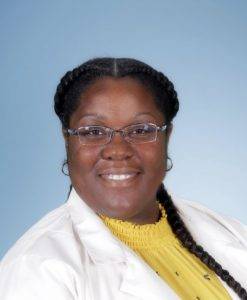 Frontier Nursing University (FNU)
Frontier Nursing University (FNU) Are you considering a career in the healthcare field? Do you have a passion for serving women and families? A passion for providing holistic and patient-centered care? If the answer is yes, consider becoming a
Are you considering a career in the healthcare field? Do you have a passion for serving women and families? A passion for providing holistic and patient-centered care? If the answer is yes, consider becoming a 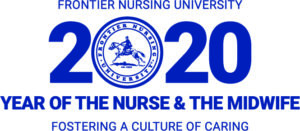
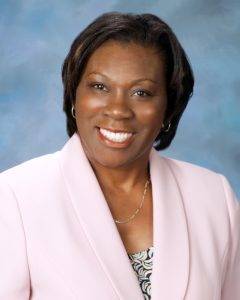


 Dr. Nikia Grayson, DNP, MSN, MPH, MA, CNM, FNP-C, FACNM (she/her) is a trailblazing force in reproductive justice, blending her expertise as a public health activist, anthropologist, and family nurse-midwife to champion the rights and health of underserved communities. Graduating with distinction from Howard University, Nikia holds a bachelor’s degree in communications and a master’s degree in public health. Her academic journey also led her to the University of Memphis, where she earned a master’s in medical anthropology, and the University of Tennessee, where she achieved both a master’s in nursing and a doctorate in nursing practice. Complementing her extensive education, she completed a post-master’s certificate in midwifery at Frontier Nursing University.
Dr. Nikia Grayson, DNP, MSN, MPH, MA, CNM, FNP-C, FACNM (she/her) is a trailblazing force in reproductive justice, blending her expertise as a public health activist, anthropologist, and family nurse-midwife to champion the rights and health of underserved communities. Graduating with distinction from Howard University, Nikia holds a bachelor’s degree in communications and a master’s degree in public health. Her academic journey also led her to the University of Memphis, where she earned a master’s in medical anthropology, and the University of Tennessee, where she achieved both a master’s in nursing and a doctorate in nursing practice. Complementing her extensive education, she completed a post-master’s certificate in midwifery at Frontier Nursing University.









 Dr. Tia Brown McNair is the Vice President in the Office of Diversity, Equity, and Student Success and Executive Director for the Truth, Racial Healing, and Transformation (TRHT) Campus Centers at the American Association of Colleges and Universities (AAC&U) in Washington, DC. She oversees both funded projects and AAC&U’s continuing programs on equity, inclusive excellence, high-impact practices, and student success. McNair directs AAC&U’s Summer Institutes on High-Impact Practices and Student Success, and TRHT Campus Centers and serves as the project director for several AAC&U initiatives, including the development of a TRHT-focused campus climate toolkit. She is the lead author of From Equity Talk to Equity Walk: Expanding Practitioner Knowledge for Racial Justice in Higher Education (January 2020) and Becoming a Student-Ready College: A New Culture of Leadership for Student Success (July 2016 and August 2022 Second edition).
Dr. Tia Brown McNair is the Vice President in the Office of Diversity, Equity, and Student Success and Executive Director for the Truth, Racial Healing, and Transformation (TRHT) Campus Centers at the American Association of Colleges and Universities (AAC&U) in Washington, DC. She oversees both funded projects and AAC&U’s continuing programs on equity, inclusive excellence, high-impact practices, and student success. McNair directs AAC&U’s Summer Institutes on High-Impact Practices and Student Success, and TRHT Campus Centers and serves as the project director for several AAC&U initiatives, including the development of a TRHT-focused campus climate toolkit. She is the lead author of From Equity Talk to Equity Walk: Expanding Practitioner Knowledge for Racial Justice in Higher Education (January 2020) and Becoming a Student-Ready College: A New Culture of Leadership for Student Success (July 2016 and August 2022 Second edition).